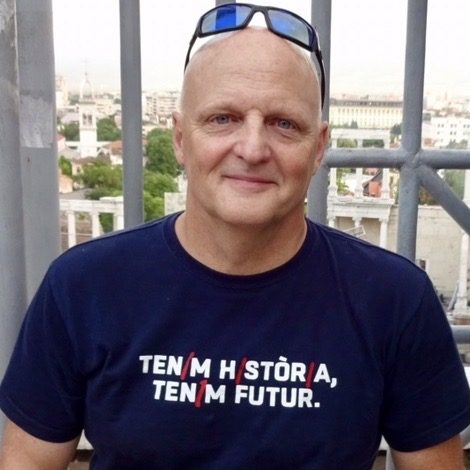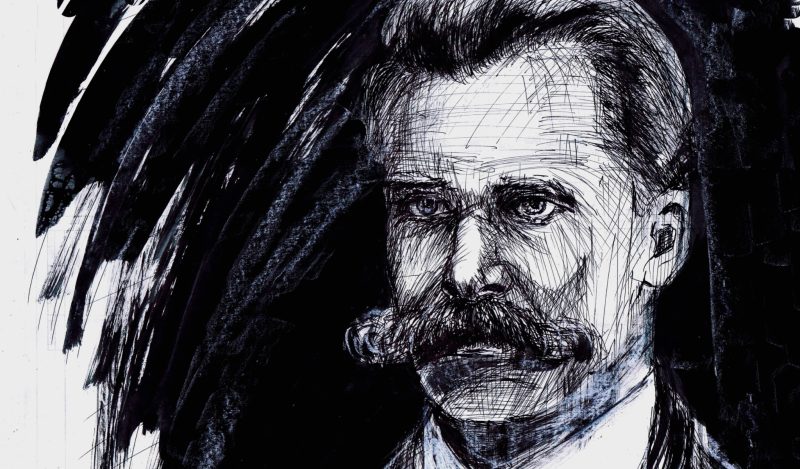“Sticks and stones can break my bones, but words can never hurt me.”
Everyone of a certain age knows this saying, and probably also used it on one occasion or another in the course of their childhood. It was a ready psychic shield bequeathed to us by our parents and adult relatives who were much more aware than we were then of the need to erect boundaries between self and other in a world filled, at times, with both mindless aggression and frequent attempts by others to cow us into submitting to their will.
Viewed more philosophically, it speaks to a very important idea: that even when young we have, or perhaps more accurately, we can strive to have, a unique and coherent identity —imbued with volition, discernment and resilience—that confers on us the ability to stand up to life’s many storms.
It is an outlook that dovetails quite nicely with the basic requirements of citizenship as envisioned by the founders of our constitutional system, which to work properly, requires a widespread ability among citizens to wade out into the public square with both an individual sense of agency and the ability to absorb and respond to the opinions of others whom they do not necessarily know, like, or perhaps even respect.
Yet as we look around, these once unremarkable postulates about what is needed to operate more or less comfortably and effectively in a complex society seem to be fast disappearing, replaced by a model of social comportment that presumes the vital fragility and psychic disjointedness of us all.
“Words,” if we are to listen to the preachers and screechers of our new social ontology, not only hurt people, but break them… irremediably. And because of this, the same preachers and screechers tell us, all sorts of limits need to be placed on the comportments of others by our institutions. And if those limits are not forthcoming in the timespan the verbally wounded deem proper, the same people say, then the aggrieved are perfectly entitled to exact justice on the mis-speakers through reputational destruction and social death.
Dealing with such people is at best tedious and at worst hazardous to one’s livelihood and mental health. It is especially so when, as seems to be the case, hugely powerful entities are backing their thuggery. The first instinct of any sane person in the face of these tantrum- throwers in adult bodies is to flee.
Hard as it might be—and I speak from experience—I believe we should, however, try and resist that impulse.
Why?
For the simple fact that for all of their huffing, puffing and excellence in the art of hurling snark these mostly younger people are hurting. And they are hurting because, like the tantrum-throwing infants they so often resemble, they lack the solid interpersonal boundaries and the social and linguistic skills needed to successfully negotiate what Sara Schulman calls “normative conflict.”
And a lot of that is on us, which is to say, those of us who did receive those skills and decided—out of some combination of distraction, neglect, or a desire to flee from the complexities of our own familial and social pasts—to not pass them on to our children.
Many of us “Boomers” were vested by dint of our extremely fortunate historical circumstance with enormous potential stores of social authority and we decided not to exercise a good portion of it out of a fear of replicating what our media culture—always anxious to sell us new things and disparage old ones—constantly told us were the outmoded and overly hierarchical ways of our WWII-era parents.
No, we were going to be different. We, as the first full generation raised on the eternal youth culture of TV were, when it came to our turn, going to let the children show the way.
But, did we really take the time to think of what might have been lost in this process, and its possible connection to the legions of fragile fit-throwers who now seem to inundate our media spaces?
Let’s go back to the term authority. I suspect that for most people today, the word has a largely negative valence. However, when we look at it through an etymological lens we can see just how distorted such a take is. Its root is the verb augere which means to make something better or bigger through consciously taken action. For example the word author, which is to say the creative individual par excellence, springs from the same Latin root.
Understood in this way authority becomes, among many other things, a source of wonder and inspiration. For example, without the creative authority of Ernest Hemingway, and the literary persona he invented of the young American who learned to bridge cultural gaps by learning the languages of others with colloquial precision, I doubt I would have ever thought of pursuing the career I did.
Without an understanding of certain family members’ long battles to achieve authority in their fields of expertise, I doubt I could have made it through the often dispiriting maze of grad school.
An increasing number of therapists and cognitive scientists maintain that our sense of personal identity as well as our understanding of “reality” are essentially narrative in form. And this leads to an important question.
What happens to those who have never closely observed, or been told about, the creative, loving and liberating side of authority when it comes their time to begin “authoring a life?”
What happens to those young who have never been seriously tasked by someone who did take on the arduous task of becoming authoritative to do the same?
What happens, I would argue, is what is happening with so many young people today.
We are now a generation into trophies for everyone, and easy A’s at every step of the educational ladder, practices that essentially insulate young people with the need to enter into serious dialogue with authority, with all that that portends in the realms of learning to overcome fear, finding and developing a wide range of appropriate expressive registers, and recognizing that while you are unique, miraculous and full of insights, your life purview is usually dwarfed by those who have been thinking about questions and problems similar to your own for many more years.
This compulsive shielding the young from honest encounters with authority—encounters that treat them not as fragile sparrows but intrinsically hardy future adults—has engendered another pernicious result: the belief that parental love, and by extension care as dispensed by other titular figures of authority, is, or should be, mostly about the provision of comfort.
Comfort is a wonderful thing. Like most other people I crave it and hope to bestow on those I love.
But as a father and as a teacher, I realize that providing it is only one of my key responsibilities. Arguably more important in the long run is my ability—which of course is a function of the extent to which I have succeeded or failed in gaining possession of myself—to present a semblance of intellectual and moral coherence to my “charges.” and in this way, give them a concrete outpost in space and time from which they can begin defining the struggles (one of which could very well be the experience of having had to deal with me!) that will define their lives and that will shape their identities.
In this vein, I often remind people of the verb at the root of my long-held vocational title. To profess is not about controlling or necessarily even convincing others, or ensuring that their lives are stress free. Rather it is simply about sharing a little bit about what you, with all inherent limitations on what we believe to be true and/or worthy of pondering in a given moment in time, and inviting students to generate a coherent, but not necessarily similar or even concordant response to what I have said.
Is the game rigged? Does it contain the possibility for abuse? Of course, because I have thought more about these things than they have and have the power to give them grades. But if—and it’s a big if—I have successfully sorted out the stark difference between authority as self-possession and authority as the drive to achieve dominion over others, the chances of this happening are rather slim.
But the fact remains, and I have heard it from my students’ mouths, they do not trust that authority can and will be exercised in this loving and constructive way. And I’ve got to believe that this has something to do with the fact that the comportment of many adults in their lives often oscillated between the extremes of demand-free indulgence (“everything you do is wonderful”) and stark commands to produce marketable, if largely superficial results (Better make sure you get that “A”!).
If I am right, is it any surprise they act the way they do when someone, acting out of a good-faith sense of authority, rooted in the idea of conserving and passing on the best of what he or she believes the culture has to offer, takes a stand? Based on their experience they see it as yet another insincere pose that will be abandoned as soon as they up the intensity of the tantrum machine.
Though it may be late, we must begin standing up to the tantrum machine more directly and forcefully, while at the same time demonstrating the type of loving authority that has obviously been in short supply in many of their lives. We need to do so for the preservation of our culture.
But we also need to do so for another arguably more important if less immediately obvious reason: to—as dramatic as it may sound—save the very idea of coherent personhood in a world where very powerful forces would be more than content to see it go away.
Let’s be frank. Someone who believes that hearing or reading opinions that do not precisely ratify their particular way of viewing self and other is tantamount to physical harm or extinction has a very, very tenuous sense of identity and/or self-possession.
What they are, in effect, saying is that when it comes to this thing called “me” that there is no semblance of a solid and autonomous self within and that they are, rather, a mere sum of the informational inputs delivered to their device at any given moment.
At that, moreover, they feel largely impotent when it comes to psychically erecting barriers against this constant flow of supposedly homicidal words. They are admitting, in short, that the will-driven, alchemical process of developing a durable identity is at or near death within them.
And the question, as always, is who benefits from this state of affairs?
Certainly not the patently unhappy sufferers of this condition. Nor those of us who feel obligated to preserve and pass on the best elements of our cultural heritage.
But what about those very few possessing the keys to the massive information machine desirous of further enhancing their already obscenely outsized levels of control over the great mass of human lives?
I’ve got to believe they are smiling quite broadly as they watch this unfortunate dynamic play itself out among us.
Published under a Creative Commons Attribution 4.0 International License
For reprints, please set the canonical link back to the original Brownstone Institute Article and Author.









